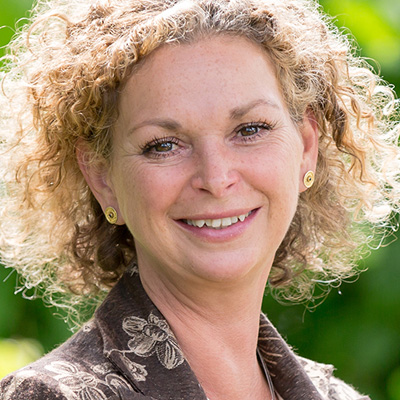
Helen Greatorex
Chief executive
Kent and Medway NHS and Social Care Partnership Trust
Helen holds a nursing qualification and an MBA. She has worked as a nurse in mental health services for 35 years. Helen won the Florence Nightingale Leadership Programme scholarship which encouraged her to apply for her current chief executive role after being an executive director of nursing for 14 years.
Q: Was there a particular job, opportunity or experience which convinced you to apply for the chief executive role?
I won a scholarship for the Florence Nightingale leadership programme at the end of 2015. It was pivotal in my decision to apply for a chief executive job. By the end of the residential week, in early 2016 which was an immersion with tutors from Harvard, I had rediscovered my forgotten ambition to lead an organisation. By the Thursday of the same week I had had an initial telephone conversation with my now chair and that was it, I was off! The scholarship challenged, stretched and reconnected me to something that I had forgotten. The luxury of the residential week was truly life affirming and life changing. It connected me with not only my identity as a nurse, but as a leader and crucially, a potential chief executive.
Q: How does your clinical background help you to perform effectively as a trust chief executive?
Having a clinical background enables me to see some things more easily and to understand the clinical perspective when we are considering strategic direction and priorities. It informs my thinking and approach in ways of which I am not always aware at the time. My mental health nursing career began as a student nurse 35 years ago and is truly part of who I am. I can still remember my training, working night shifts and supporting people to move out of long-stay hospitals to live independently. I remember the frustration I felt working at the frontline, when I could see that the service managers had no idea about what it was really like to provide good quality care in very demanding environments. That experience, combined with directly working with our service users, informs my approach as a chief executive.
Having a clinical background enables me to see some things more easily and to understand the clinical perspective when we are considering strategic direction and priorities. It informs my thinking and approach in ways of which I am not always aware at the time.
Q: What do you think is more important for your performance as a trust chief executive?
Great question but impossible to answer! I became a registered mental health nurse because of the person I am. The two are indistinguishable and make me, me. The best chief executives, those I have been privileged to work for and those who have mentored me, bring their whole selves to the role. Some have had clinical backgrounds, others have not. What makes them stand out as brilliant is their confidence to be themselves. That’s where authenticity lies and it is compelling when you see it in action.
Q: Have you considered maintaining clinical practice alongside your chief executive responsibilities?
I have up to date registration and will retain it. I work shifts on the wards sometimes, these days I do it as a healthcare assistant. Every month I dedicate one shift or whole day, to practice of some sort. Sometimes it is on the wards, sometimes out in the community. It keeps me connected to the reason we are all here and truly shapes and informs my thinking.
As chief executive, I hold a small caseload of service users. Sometimes I meet them in the course of a complaint or concern and then work with their clinical team to ensure that the team has everything they need to put things right. Being able to work directly in this way, though it forms only a small part of my week, brings together my responsibility as chief executive, with my clinical background and experience.
The best chief executives, those I have been privileged to work for and those who have mentored me, bring their whole selves to the role. Some have had clinical backgrounds, others have not. What makes them stand out as brilliant is their confidence to be themselves.
Q: What support have you had along the way to get to where you are?
The Florence Nightingale leadership programme was outstanding. It pulled and pushed me in ways that other courses and an MBA definitely did not. It also gave me time to think in a way that day-to-day life as an executive director for fourteen years, hadn’t. Mentorship and coaching as a result of that programme were pivotal in supporting me to think about my career and life in a different way. I was 52 when I finally applied for my first chief executive job and I can honestly say it was the best thing I ever did.
